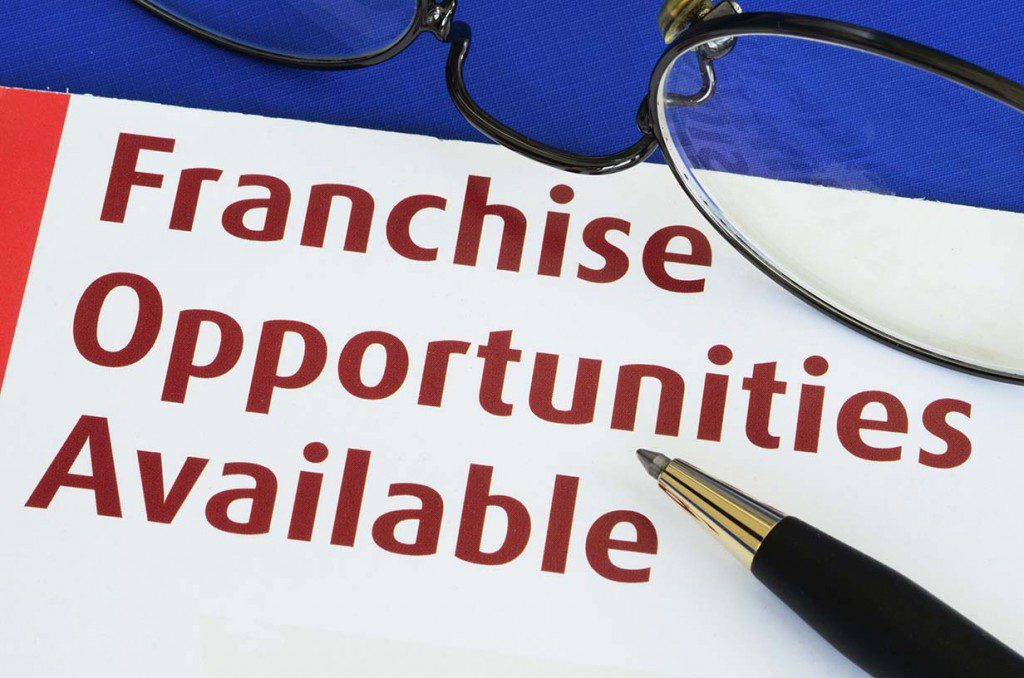(FS7) Securing a Place for Business and Building Yourself In

Now that you’ve located your place, it’s time to look into the process of securing it. The first thing to note is the landlord that you will be renting from, if you are renting and not purchasing. Some landlords might have a predisposition to not liking your franchise for personal encounter reasons or for having bad run-ins with people who worked in the same industry. Be ready to charm a landlord who isn’t on board by being responsible, respectful, and enthusiastic. Give the landlord a sense of prestige that comes with your franchise so he feels more comfortable accepting you as a tenant. Another good thing to do is to approach landlords as a seller, not a buyer. You’re going to have to sell them the idea of your project in order to secure the property and a space in their respect books. If you don’t believe in the industry or franchise, you’ll have a hard time convincing others to take stock in you and your success.
Signing the Lease for Your Business
 After you’ve decided on a location and gotten the landlord on board, it’s time to sign the lease. This can be done in a leasing office, an office inside the mall, a lawyer’s office, a personal office, or some other place. You should fully read the leasing documents and make sure you understand all of the obligations and expectations. You should also make sure that this is 100% the location you want before deciding on it because once you sign, it’s yours and moving or expanding probably won’t happen for some time, if you want it to happen at all. You should ask your landlord or leasing agent about costs or any other questions you might have prior to signing the lease so you can sign it in full confidence.
After you’ve decided on a location and gotten the landlord on board, it’s time to sign the lease. This can be done in a leasing office, an office inside the mall, a lawyer’s office, a personal office, or some other place. You should fully read the leasing documents and make sure you understand all of the obligations and expectations. You should also make sure that this is 100% the location you want before deciding on it because once you sign, it’s yours and moving or expanding probably won’t happen for some time, if you want it to happen at all. You should ask your landlord or leasing agent about costs or any other questions you might have prior to signing the lease so you can sign it in full confidence.
Building the Location
When you’re looking at franchising locations, you don’t always find a building, but you find a plot of land or there’s a building that you’ll be renovating. This is the part where your dream, your vision of franchising, will come to life, but as exciting as it is, it can also be an extremely tedious and demanding job. You’ll need to be aware of everything that goes down during construction, you’ll more than likely need to be present for any major work being done to make sure it’s done right and to your specifications. I all goes well, you should have no problem building.
Before and as you build, you’ll want to update yourself on the current building laws and regulations so you can be sure your business is in city compliance. You’ll also want to determine if you’ll need your city’s approval or permits for anything that you will either be building or using. If you get all of this set up prior to opening, everything will run smoother with less of a rush towards the end. You’ll want to make sure that the property has the space to accommodate utilities, parking, and anything else you can think of needing. If not, you’ll want to figure out a solution during this time, particularly if you have to build it.
 Typically contractors will do all the pre-grounding work just to make sure it’s done properly, but you’ll want to double check that it all gets taken care of before you start because ultimately it is your responsibility, not theirs or your franchisor’s. You’ll want to make sure your contractor has the following:
Typically contractors will do all the pre-grounding work just to make sure it’s done properly, but you’ll want to double check that it all gets taken care of before you start because ultimately it is your responsibility, not theirs or your franchisor’s. You’ll want to make sure your contractor has the following:
- Certificates of Occupancy
- Permits (construction, building, utilities, signs, curb cuts, etc.)
- Variances (approval for specific violations or zoning requirements
Read More From Franchise Series 7:
- Getting Your Franchise Started
- Common Site Options for Franchising Your Business
- A Closer Look at Some Sites for Franchise
- Dual Branding as a Franchise Option
- What Constitutes a Site as “Good” for Your Business?
- Understanding Business Layout and Encroachment
- Setting Up Your Franchise with Contractors and Supplies
- Options for Franchise Merchandise and Supply Ordering
- Procedures for Receiving Merchandise at Your Franchise
- Maintaining Inventory in Your Franchise – Front and Back of House
- Training Yourself Before You Open Your Franchise
